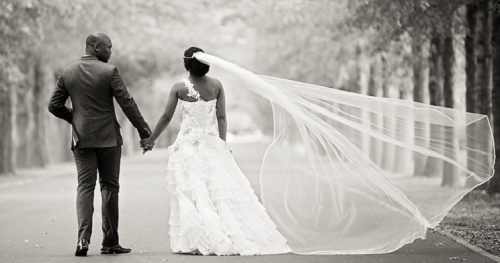
Weddings - Why you do what you do!
As love birds walk down the Ghanaian aisle every Saturday, one question that lingers on my mind is, “Do these understand what they do?” Probably if they did, they would have pondered over their decision to marry a little more.
Hopefully if they did, they would have given divorce courts only little work to do.
Of a truth, weddings have been in existence for ages. Though trends, culture and modernization may tend to add up or take away some parts, the significance of the wedding traditions still remains the same.
For instance, it’s widely believed that a maiden who catches the bride’s bouquet takes home some luck which may make her the next bride.
Ever asked why the bride stands on the left-hand side of the groom? Well, he needed to fight off enemies with his right hand.
Interesting, huh?
There are still more fascinating reasons behind some wedding rituals. Courtesy Wikipaedia, let me take you through a few.
Why does the bride wear a veil?
The veil has its own importance in a wedding. Like the biblical veil that was torn to usher humanity into a New Testament era, a bride’s veil was used to signify that her sexuality was unexploited yet.
In other words, she was about to be ushered into a “new” era by her groom.
The veil is/was not a fashion token. It denotes modesty and virginity. It shows purity. Next time you want to wear one, know why other gowns come without it!
Why is the ring worn on the left hand’s fourth finger?
In Roman times, it was believed that the fourth finger of the left hand had a vein that directly run to the heart. Called the “vein of love”, putting a ring on it could supposedly grasp one’s lover’s heart (believed to be in the left chest region). Bet you didn’t know that!
Though Science has debunked this folktale because almost all veins return blood to the heart, rings are still kept on this finger. Every minute you have a look at your wedding ring, know that it was made with your heart in mind.
Why does the bride wear a white gown?
If you always had assumed that brides wore white gowns to denote purity, I must confess you were not far from… wrong. Back in the day, gowns came in different colours, according to the bride’s own preferred choice. In fact, there were even red gowns!
And then… the fashionable Queen Victoria in 1840 sparked a trend. She donned a glorious white gown when she was being wedded by Prince Albert and that was i t — white gowns have been a thing ever since!
It’s not a rule of thumb to wear a white gown for your wedding. You can daringly start a trend, too.
However, if you want to go all white, thank Queen Vicky!
Bridal Shower — What did it mean?
According to The History of Weddings, bridal showers originated in Holland for brides whose fathers denied them dowries.
In such a situation, her friends would give her several gifts to allow her to have the necessary dowry to marry whatever man she chose. Yes!
Why a convoy of bridesmaids?
In times past, it was believed that evil spirits and enemies hovered around to destroy the bride, according to American wedding customs. To confuse such as to who the actual bride was, bridesmaids were dressed up to look exactly like the bride!
Should you someday want to swerve your household witches with your convoy, always remember that African witches never take their eyes off their target. Haha.
Why groomsmen and best man?
Kidnapping a bride was a thing many centuries back. The groom had to choose which of his friends (who are today known as groomsmen) would help him capture and keep his bride. These friends apparently helped him ward off likely rivals and enemies, too.
The strongest or best of his friends led this group, hence, the name “best man”! Back then, if you were not strong enough, you never could have ever been a best man. Too bad.
Honeymoon?
Ever thought of what this means? Well, back in the day, Germanic weddings were held on the night of a full moon. Newlyweds will then drink mead (honey drink) for 30 days (until the next full moon) after their wedding, hence, the name “honeymoon”.
Amazing reasons, huh? I guess you now know why you did what you did during your wedding. Happy marriage!
